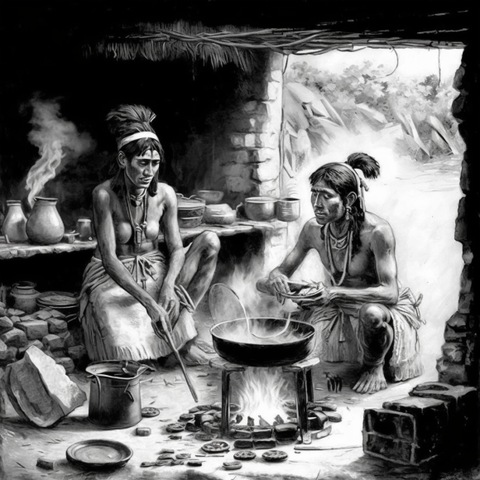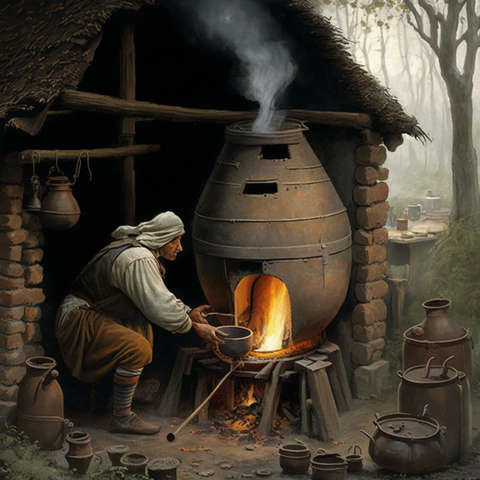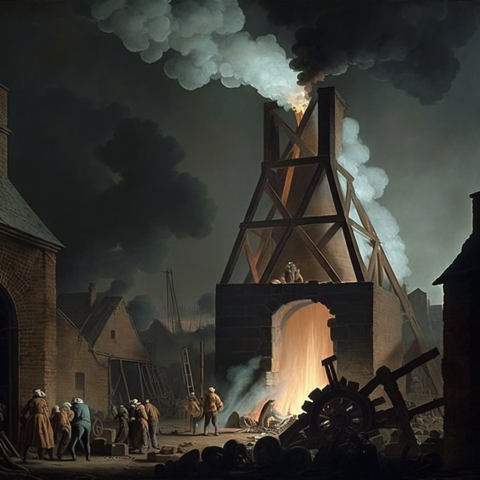The Role of Charcoal in Ancient Civilisations: Cooking, Metalworking, and More

Charcoal has a long and fascinating history that spans across civilisations and millennia. The earliest evidence of charcoal production dates back to the Neolithic period, where early humans discovered that burning wood in a low-oxygen environment would produce a more efficient and longer-lasting fuel source than simply burning wood outright. Charcoal was an important fuel source in ancient times, and it was used for heating and cooking, as well as for metalworking and other industrial processes.

In ancient Greece and Rome, charcoal was an essential part of daily life. The Greeks used it for smelting metals, while the Romans used it for heating their homes and public baths. Charcoal was also used in ancient Egypt for smelting gold and other metals, and it was an important ingredient in the production of glass. Charcoal production during this time period was largely done through the use of simple earth kilns, and the process of charcoal production was often very time-consuming and labour-intensive.
During the Middle Ages: An Important Industry in Europe

During the Middle Ages, charcoal production was an important industry in Europe, and it was closely tied to the region's metalworking and manufacturing industries. Charcoal was used for cooking and heating, as well as for blacksmithing, glassmaking, and other industrial processes. Charcoal burners would set up camps in the forest and burn wood in kilns to produce charcoal, which would then be transported to nearby towns and cities to be sold.
Charcoal production during the Middle Ages was often a labor-intensive process, and it required a significant amount of time and effort to produce enough charcoal to meet the demand of local industries. Charcoal burners had to be skilled in selecting and cutting the right types of wood, as well as in constructing and maintaining their kilns. In some regions, such as the Weald in England, the production of charcoal was so important that it was regulated by local laws and customs. Despite the challenges of the charcoal production process, it was a vital industry that provided jobs and income to many rural communities throughout Europe.
Fueling the Industrial Revolution (initially)

With the advent of the industrial revolution in the 18th and 19th centuries, charcoal became an essential ingredient in many industrial processes. Charcoal was used as a fuel source for iron production and in the manufacture of gunpowder and other explosives. However, the widespread use of coal and other fossil fuels eventually led to a decline in charcoal production, and by the 20th century, charcoal production had largely become a niche industry.
An Environmentally Friendly Fuel for cooking
Today, charcoal is still a popular fuel source for grilling and cooking, and its use is becoming more widespread as consumers become increasingly concerned about the environmental impact of fossil fuels. Advances in production methods have also made charcoal more efficient and cost-effective, making it a viable alternative to other fuel sources. Modern methods of charcoal production involve the use of specialised kilns that can produce high-quality charcoal in a matter of hours rather than days or weeks.
Globaltic are a company that has recognised the growing demand for sustainable and environmentally-friendly fuel sources. We specialise in producing high-quality charcoal for grilling, using modern production methods that are both efficient and cost-effective. We are fully conscious of the environment (read about our sustainability practices) Whether you're a professional chef or an amateur grilling enthusiast, Globaltic Charcoal is the perfect choice for those who want to enjoy grilling and be certain it is environmentally friendly.
In conclusion, the history of charcoal is a rich and fascinating one that has played an important role in human society throughout history. From its use as a fuel source and industrial material to its role in art and creativity, charcoal has been an essential ingredient in countless processes and industries over the centuries. As we look to the future, it is likely that charcoal will continue to play a significant role in our lifes and we will be here to help with that.



Share:
Grilled Watermelon Salad with Feta and Mint
Grilling Like Royalty: A Look at Royals Throughout History Who Enjoyed Barbecuing